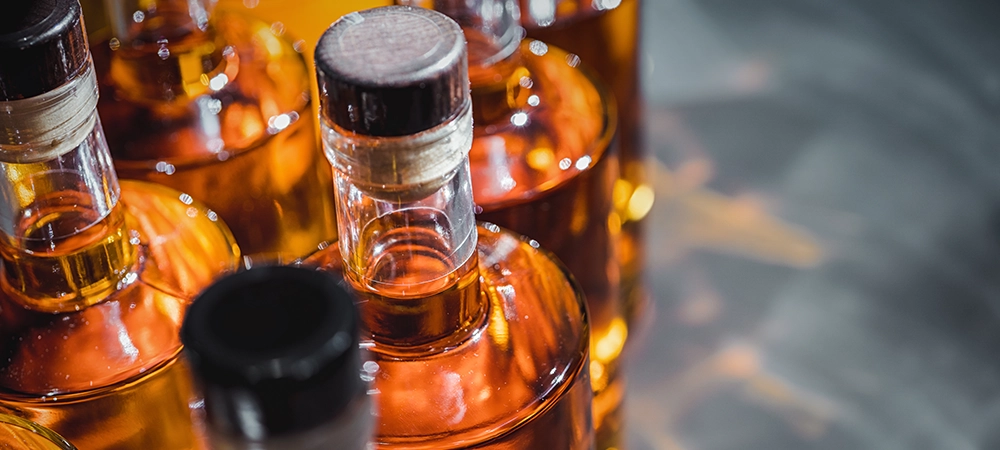The term “high-functioning alcoholic” is an enabling term used to play down a big problem. It refers to an alcohol-dependent person who still manages to have a job and other life amenities. As such, it’s daunting to see the alcohol problem based on their perceived normalcy.
According to a 2023 Statistics Canadian survey, over six million Canadians admitted that they practice heavy drinking. The shocking case is this survey involved kids and teenagers between twelve and seventeen. So we have an alcohol challenge that we’re not doing enough about.
Not all alcoholics have their lives shattered by the substance. But the so-called functional alcoholics are on their way to having an alcohol use disorder.
Here, we’ll explore the psychology behind functioning alcoholism, how to notice it, and possible solutions.
What Is Functioning Alcoholism and The Psychology Behind It?
Functioning alcoholism is a concept used to describe alcohol addicts who hold down everyday lives. The alcoholic manages to do their jobs, pay bills, have a family, and other things. But they can’t go a few hours without alcohol.
Functional alcoholics are possibly the most common. And even experts overlook them since their lives still follow the correct pattern. But soon, the alcohol addiction will eat deep and affect their daily lives.
Chances are high that functional alcoholics aren’t operating optimally and struggling to make ends meet. They may miss deadlines at work and pay bills through loans. But we assume they’re “functional” because they meet basic needs.
Let’s explore how functioning alcoholism works and the factors that cause the condition;
Social Factors
Our society is one of the significant influences on our mindset and characters. It’s also the most crucial factor in the psychology behind functioning alcoholism. Part of what forms social factors include;
- Religion
- Family
- Work
- Locatio
Religion helps you set rules for living your best life. Some religions believe in the use of alcohol to appease the maker. That’s enough validation to see alcohol as a necessity.
In addition, your immediate family has a major influence because you spend most of your time with them. If your loved one is an avid drinker, there’s a high chance that you develop alcoholism.
Alongside, if your home or work location is close to an alcohol base, you’re likely to start drinking. This situation is dangerous if you have work colleagues who consume alcohol and work.
Peer Pressure
The need to fit into a particular group of friends can influence alcoholism. As a non-alcoholic, hanging around alcoholics is dangerous as they’re likely to affect you.
Alcoholics have a way of making alcoholism look like a cool activity. It’ll seem as though you’re missing out on life without taking the substance.

Trauma Experiences and Mental Health
According to a 2021 Veterans Studies Journal, a Canadian study proved that people with a history of PTSD usually had a higher alcohol use score than people without trauma.
The psychology behind functioning alcoholism and trauma is codependent. People with PTSD are at higher risk of drinking alcohol. And people who drink alcohol have a high chance of having PTSD
Trauma comes in different forms, including accidents, dangerous events, and violence. Not getting over such events before drinking leaves you at a high chance of addiction.
In addition, your mental health state puts you at higher risk of becoming a high-functioning alcoholic. For example, let’s assume you have a mental condition like depression. You’ll only feel better when you take some alcohol.
Genes
You can’t understand how functional alcoholism works without studying a bit of genetics. Genes and alcoholism have close relations.
According to the Canadian Centre for Addictions, more than 400 segments of gene information can potentially affect alcohol intake. In addition, genetics is responsible for 60% of any health hereditary inheritance.
Genes can cause higher risks of getting an alcohol disorder. But it still depends on decisions from the affected person.
So, try to trace any family history of alcoholism if you notice a loved one becoming a functional alcoholic. Their dependence may not exactly be their fault.
Early Drinking
Canada’s legally accepted drinking age is nineteen, except for some provinces, including Alberta, Quebec and Manitoba. These provinces choose Eighteen as the accepted legal drinking age. But, multiple surveys capture teenagers admitting to drinking.
If your loved one has been drinking from a young age, their body gets used to the substance. As such, it becomes a part of their daily lives, and they depend on it.
Alcohol Tolerance and Dependence
Increased alcohol consumption breeds a stronger functional tolerance to alcohol. If you could only consume two bottles of beer before, you’ll start needing one more to feel the high you want. As such, you become more dependent on the substance.
Alongside, you’ll start requiring alcohol to take on specific tasks. That’s where being a high-functioning alcoholic begins.
Related Article: Navigating Life with a Recovering Alcoholic: A Guide to Aftercare and Relapse Prevention
How to Recognize a Functioning Alcoholic
It’s not easy to know a functioning alcoholic by merely looking at them. Here are sure signs of functional alcoholism that can inform whether your loved one needs help.
- Functional Livelihood: High-functioning alcoholics always have their jobs, education, and religion in check.
- Hidden Alcoholism: Alcoholics love to drink with friends and peers. If you notice your loved one drinking alone or trying to hide bottles and traces of the alcohol, they’re a high-functional alcoholic.
- Aggressive Denial: Do not accuse your loved one of alcoholism unless you’re sure with evidence. Expect them to deny it even with enough evidence. And sometimes, they may get very aggressive.
- Alcohol Jokes and Support: A regular alcoholic will randomly joke around about having a problem with alcohol. But if you study them well, they never talk down on alcohol. Instead, they’ll praise it.
- Undisciplined Alcohol Intake: Most functional alcoholics try to reduce or control how much they consume. But they somehow can’t control it and always get drunk.
- Drinking Before Activity: The psychology behind functioning alcoholism worsens when you can work and function under the influence. Soon, the alcoholic won’t be able to complete any tasks without alcohol. These tasks include sleeping, working, and exercise.
- Withdrawal Signs: Withdrawal signs are the latest way to recognize a functioning alcoholic. You’re late at this point, and the person needs alcohol addiction treatment These signs include sweating, vomiting, and mood swings.
- Early and Late Night Drinking: Alcohol shouldn’t be the first thing anyone takes in the morning or the last thing before going to bed, except it’s an addiction.

How to Help a High-Functioning Alcoholic
There are many treatment options for high-functioning alcoholism. But you can’t just suggest that to your loved one. Helping a functioning alcoholic requires a systematic approach.
These steps should guide you;
Be very Sure
The first step is to be confident the person has alcoholism before you raise eyebrows. The best way to be sure is to tick three or more of the abovementioned signs.
You’ll give the person room for denial if you’re unsure. And know that they’ll permanently hide it from you. So, take time to be sure first before having the conversation.
Note that you need to be wary of time while trying to confirm. The longer they drink, the more dependent they become.
Understand The Reason
Understanding the psychology behind functioning alcoholism will make the job easier.
Is it their genes or a group of friends? Try to ask questions and find possible links to why they drink so heavily.
Seek Expert Advice
It’s not advisable to approach a high-functioning alcoholic even when you’re sure with enough evidence. Their default reply is denial, which can become aggressive if you’re persistent.
Instead, speak to an addiction expert first. They’ve learned from experience the best methods and intervention strategies to employ.
This step is also helpful in choosing the best expert for treatment.
Build Relationships and Speak from A Place of Love
The best way to recognize a functioning alcoholic is to get closer and look for the signs. You want them to feel comfortable to be their authentic selves around you.
When you find your signs, you must speak to them from a place of care. Instead of caution, try to explain the risks and consequences of heavy alcohol intake.
This point is where you can convince them to try treatment for high-functioning alcoholism.
Choose Expert Treatment (You must be present)
Ensure that you choose the best treatment for your loved one. The expert should be someone you trust and follow their lead.
In addition, try to be present for the better part of the treatment process. That’s the easiest way to help a loved one.
Related Article: Alcohol: A Complex Interplay of Stimulant and Depressant Effects in Addiction

Treatment for High-Functioning Alcoholism in Toronto
The psychology behind functioning alcoholism is the first thing to understand if you want to help a loved one. It’s easier to solve a problem when you know its source.
The best way to help a high-functioning alcoholic is by being patient and kind. Most of them aren’t aware of their condition. So they can get very defensive.
Addiction Rehab Toronto offers world-leading alcohol rehab programs in Toronto. We offer Inpatient and outpatient programs, and our experts are professional and understanding.
Book a session with us to discuss effective alcohol addiction intervention strategies.







